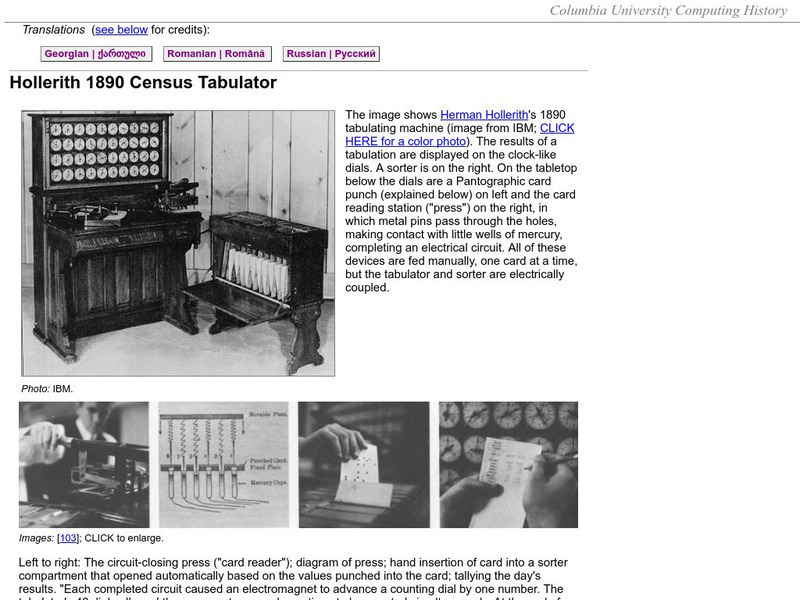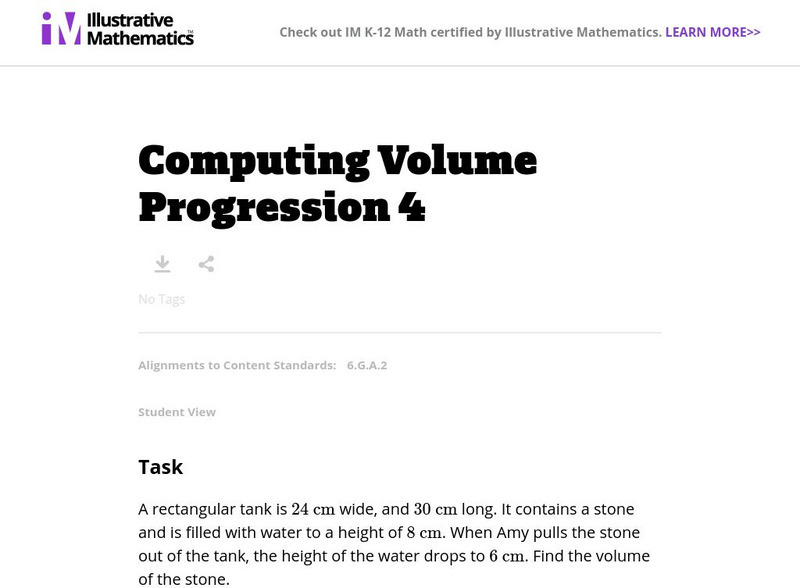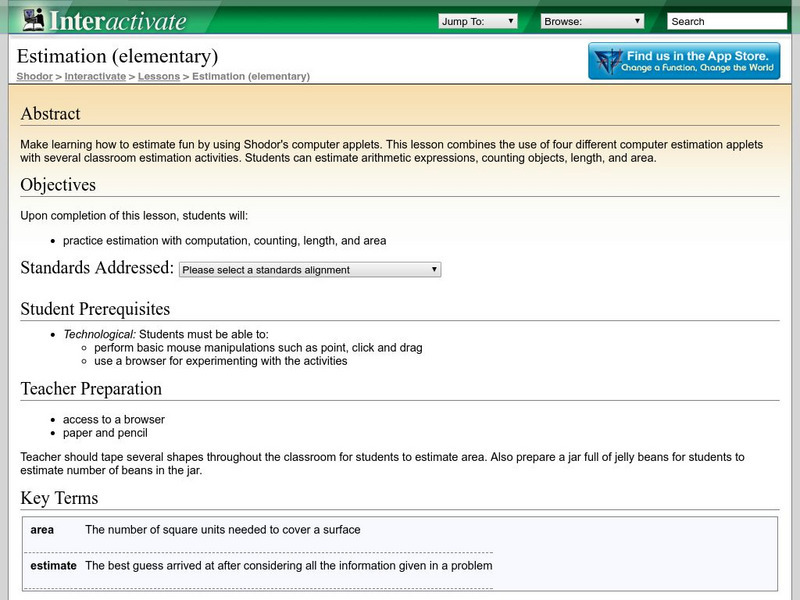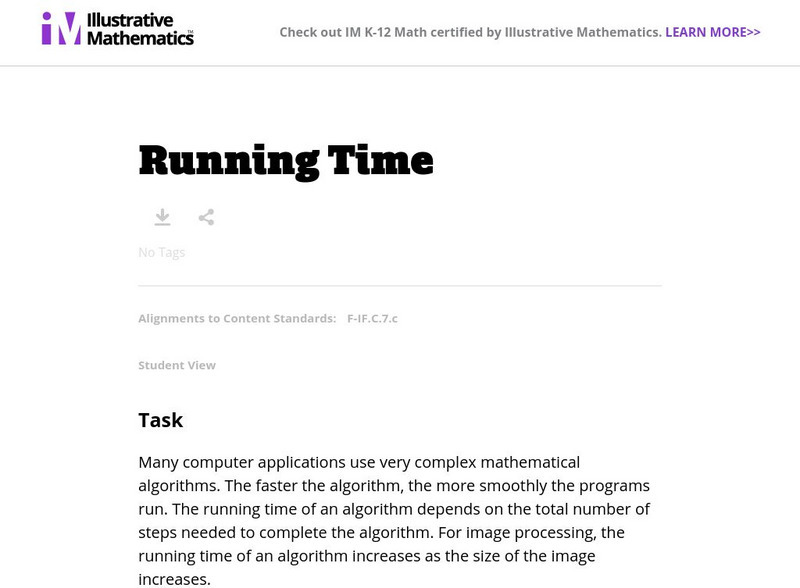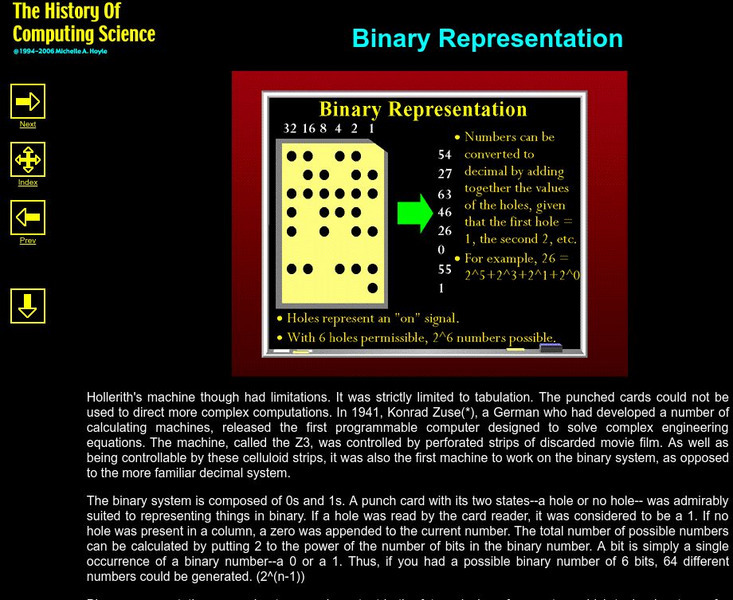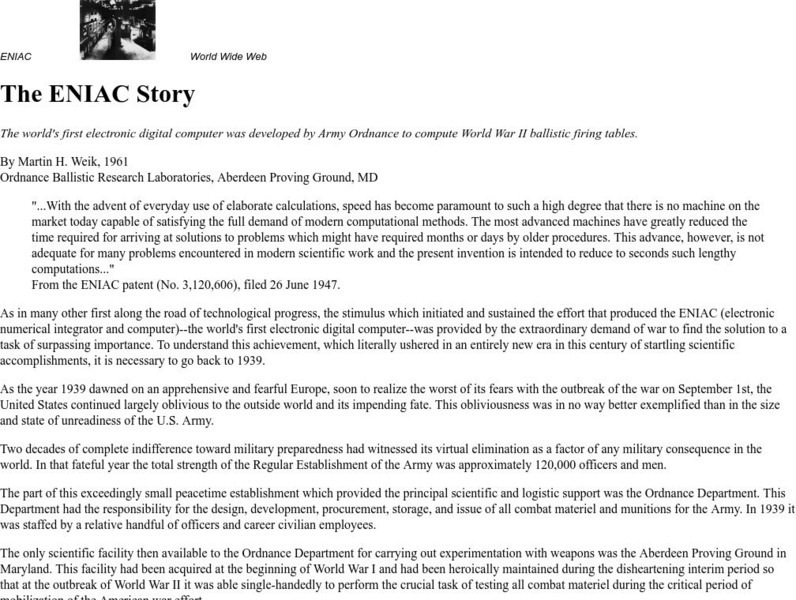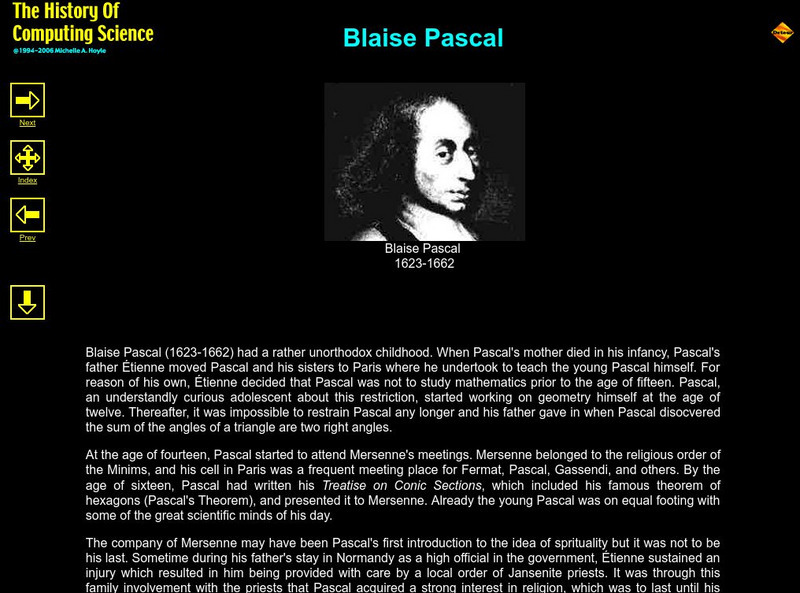Other
Usenix: The Advanced Computing Systems Association
This resource is devoted to professionals on the cutting edge of the computing world and contains membership information, news links and professional development opportunities.
Massachusetts Institute of Technology
Mit: Wearable Computing
Take an academic look at wearable computing with this site from MIT. Check out the research currently going on at the institution, including "fashion shows" of various devices. Also contains "A Brief History of Wearable Computing Timeline".
Other
Exploring Computer Science: Scope and Sequence
Exploring Computer Science is one year course consisting of six, six week long units. The course was developed around a framework of both computer science content and computational practice where assignments and instruction are...
Other
Physics: You Car Has More Computing Power Than the Apollo
A fascinating overview of what life may be like in the future. Will we one day be able to use a computer to drive a car? Find out answers to this question and more.
History of Computing Science
History of Computing Science: Charles Babbage
This is a brief biography of Charles Babbage, also known as the "Father of Computing".
Columbia University
Columbia University Computing H Istory: Hollerith 1890 Census Tabulator
Herman Hollerith's tabulating machine was a very important advancement on the historical timeline of computing devices. This site describes how the machine worked and the role that it played in the development of the computing devices...
Utah Education Network
Uen: Ordering and Computing With Negative Fractions and Decimals
This lesson plan allows students to practice comparing and ordering rational numbers on a number line as well as computing with fractions and decimals. It provides an assessment plan and attachments for the instructional activity's...
Illustrative Mathematics
Illustrative Mathematics: A sse.a.2 & N cn.a: Computations With Complex Numbers
This task requires learners to rewrite mathematical expressions involving complex numbers. Aligns with A-SSE.A.2 and N-CN.A.
Illustrative Mathematics
Illustrative Mathematics: 6.g Computing Volume Progression 1
The purpose of this first task in a series of four is to see the relationship between the side lengths of a cube and its volume. Aligns with 6.G.A.2.
Illustrative Mathematics
Illustrative Mathematics: 6.g Computing Volume Progression 4
The purpose of this fourth task in a series of four is to find the volume of an irregular 3D solid by using Archimedes' Principle. Students must calculate the volume of the displaced water in a rectangular prism tank in order to solve...
Illustrative Mathematics
Illustrative Mathematics: 6.g Computing Volume Progression 2
The purpose of this second task in a series of four is to find the volume of a rectangular prism when unit cubes are omitted from the drawing. This makes it more abstract. Aligns with 6.G.A.2.
Shodor Education Foundation
Shodor Interactivate: Lesson: Estimation (Elementary)
In this lesson students will practice estimation with computation, counting, length and area.
National Geographic
National Geographic: Interactions Within Earth's Atmospheres
Using computational models, students investigate the interaction between greenhouse gases, solar radiation, and the Earth's surface for the impact on climate. They then look at data on atmospheric carbon dioxide to analyze changes in...
Science Buddies
Science Buddies: Computational Exploration of Protein Function
The DNA in our cells contains our "blueprints," but it's the proteins in our cells that do most of the work. The Human Genome Project has allowed us to start reading the blueprints, but we still don't understand what most of the proteins...
Rice University
Hyper Stat Online Statistics Textbook: Computing the Chi Square Test
Using an example, the site walks the user through the steps needed to compute the Chi-Square Test of Independence. Links are provided along the way for relevant materials.
Other
Vision Technology for the Totally Blind
An interesting application of wearable computing that is helping blind people "see". vOICe technology uses synthetic (bionic) vision through auditory video representations, combined with current brain implant and retinal implant...
Illustrative Mathematics
Illustrative Mathematics: F if Running Time
This task provides an application of polynomials in computing. Students are asked to calculate the running time of algorithms for loading images of different sizes. They then graph the running time polynomials and decide which is more...
Other
E Cycle Best: A Concise History and Evolution of Tablet P Cs (Infographics)
Check out the illustration of the progress of personal computing tablets. Could it be true that they actually began in the nineteenth century?
History of Computing Science
History of Computing Science: Binary Representation
The binary number system is a perfect fit for the dual-state technologies used in digital computing devices. This lecture series presents a brief description of how the two fit together.
Other
History of Computing Project: James Chadwick
A really good scientific piece, adapted from American Institute of Physics. Some biographical information, but mostly on Chadwick's scientific discoveries, particularly the neutron.
Other
U. S. Army Research Laboratory: The Eniac Story
This site provides a detailed history of ENIAC, the world's first digital computer developed by Army Ordnance to compute World War II ballistic firing tables. Includes specifics on how the computer performed its calculations.
Other
Finra Investor Education Foundation: Introduction to Earning Interest 9 & 10
This lesson for 9th and 10th graders focuses on the concept of compound interest and its effect on savings. Young scholars will also learn how to compute simple and compound interest.
Other
Finra Investor Education Foundation: Introduction to Earning Interest
In this lesson, middle schoolers will learn about the concept of compound interest and understand its effect on savings. They will also learn how to compute simple and compound interest.
History of Computing Science
History of Computing Science: Blaise Pascal
Blaise Pascal was a French mathematician, physicist, and religious philosopher. He built the first mechanical calculator. This lecture presents a short treatment of his life and his accomplishments.
Other popular searches
- Computation and Estimation
- Basic Math Computation
- Whole Number Computation
- Math Computation
- Mental Computations
- Computation Review
- Basic Computation
- Computation Skills
- Computation Strategies
- Computation Methods
- Computation +Estimation
- Mental Math Computations





